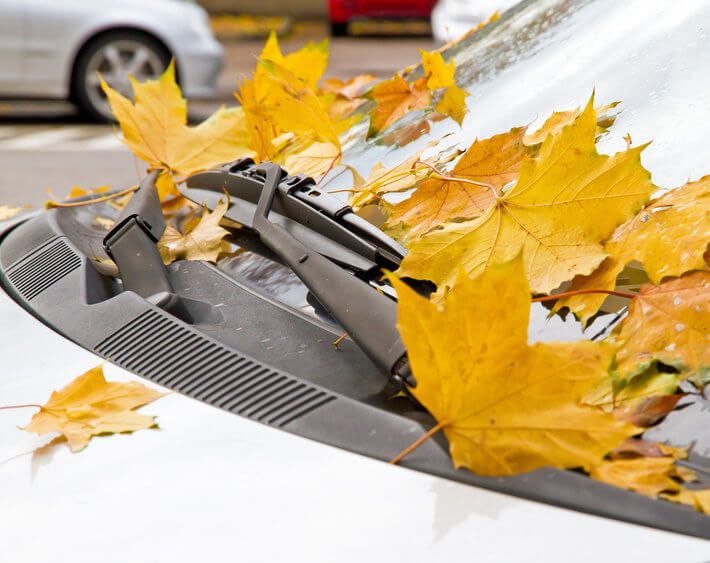The first Toyota Corolla rolled off the assembly line in 1966. More than 50 years later, the Toyota Corolla remains one of the world’s best-selling cars. We're big fans of this reliable car, and we know you are, too!
Get answers to the most commonly asked Toyota Corolla questions here, from Firestone Complete Auto Care!
1. How many Toyota Corollas have been sold?
More than 43 million Toyota Corollas have rolled off the manufacturing line since launch. That makes it one of the best-selling cars of all time.
2. How many miles can you put on a Toyota Corolla?
If shopping for a new car makes you anxious, you’ll love the Corolla. (And if you already have one, you can pat yourself on the back.) Owning a Corolla means you probably won’t need to shop for a new car for many years. Auto experts and owners alike peg the vehicle’s life expectancy between 200,000 and 300,000 miles. For comparison, the moon is 238,855 miles from Earth!
Of course, getting that kind of mileage out of your Toyota Corolla requires regular maintenance.
3. How reliable are Toyota Corollas?
U.S. News & World Report ranks the Toyota Corolla near the highest possible rating for reliability—exactly what you’d expect from a car with an average lifetime mileage that could get you all the way to the moon!
4. How does a Toyota Corolla compare to a Toyota Camry?
The Toyota Corolla is smaller than the Toyota Camry. The Toyota Corolla is a subcompact or compact car, while the Camry is a sedan.
It’s worth noting, however, that both vehicles seat five.
5. Are Toyota Corollas good in the snow?
All-wheel drive gets all the attention when it comes to winter driving. However, while the Toyota Corolla does not feature all-wheel drive capabilities, studies show that installing winter tires on your car makes a bigger difference than all-wheel drive once the snow starts to fly.
Want your Toyota Corolla to handle snowy conditions as well as possible? Then visit your local Firestone Complete Auto Care and ask about Winterforce tires.
6. Are Toyota Corollas front-wheel drive?
Yes, Toyota Corollas are front-wheel drive. That means the transmission directs power to the front wheels. Front-wheel drive in subcompact or compact cars like the Toyota Corolla has a few advantages.
- Your car is probably lighter, which means better fuel economy.
- You have better traction in slippery conditions because the bulk of your engine’s weight rests on the wheels powering you forward
- You have more interior space because your Toyota’s drivetrain elements (all the parts that help your car move) are located under the hood.
7. Do Toyota Corollas have timing belts?
The timing belt helps different valves of your engine open and close at the same time during each phase of your engine’s cycle.
If your Toyota Corolla is a model year 1998 or newer, it does not have a timing belt (it uses a chain instead). Corollas made between 1990 and 1997 use a timing belt.
Toyota Corolla timing belts typically need to be replaced about every 60,000 miles.
8. What are the most important services for the Toyota Corolla?
Built to last and tested by drivers for half of a century, the Toyota Corolla is the definition of a reliable car. But even the best vehicles require regular maintenance to continue running well. Stay on top of your Toyota Corolla manufacturer maintenance schedule, and pay particular attention to the following services.
- Oil Changes: Some Toyota Corolla owners report motor oil problems, like over-consumption and burn-off. Regularly scheduled oil changes can catch these problems early, and keep your Toyota Corolla running newer, longer.
- Wheel Alignment: Some Corolla drivers also report minor shaking, rattling, and shimmying at high speeds. This problem is often related to the tires. A wheel alignment or tire rotation may be necessary.
- Emission Check: Toyota Corolla owners should be aware that an evaporative emission control system (EVAP) fault is a common culprit of an illuminated check engine light. A vehicle emission and smog check can help diagnose the issue.
Keep in mind that your maintenance requirements might be different if you drive under special conditions.
- You idle for long periods of time or drive at low speeds for long distances. These driving habits can waste fuel, increase emissions, and strip oil from critical engine components. More frequent oil changes and engine checks may be required.
- You often drive on dirt roads or dusty roads. Driving on unpaved roads can wear out your tires and suspension faster than driving on paved roads, especially if you hit lots of bumps and ruts. More frequent suspension and alignment services may be necessary.
- You tow small loads, use a car-top carrier, or carry heavy items in your Corolla. Towing anything in a Corolla can put excess strain on your brakes and tires. Listen for squeaky brakes and monitor your tire tread depth to stay safe.
Complete Care for Your Toyota Corolla
For all of your Toyota Corolla service and repair needs, turn to your local Firestone Complete Auto Care. Our Triple Promise Guarantee means your Toyota Corolla repairs and maintenance will be Fixed Right, Priced Right, and Done Right on Time.



